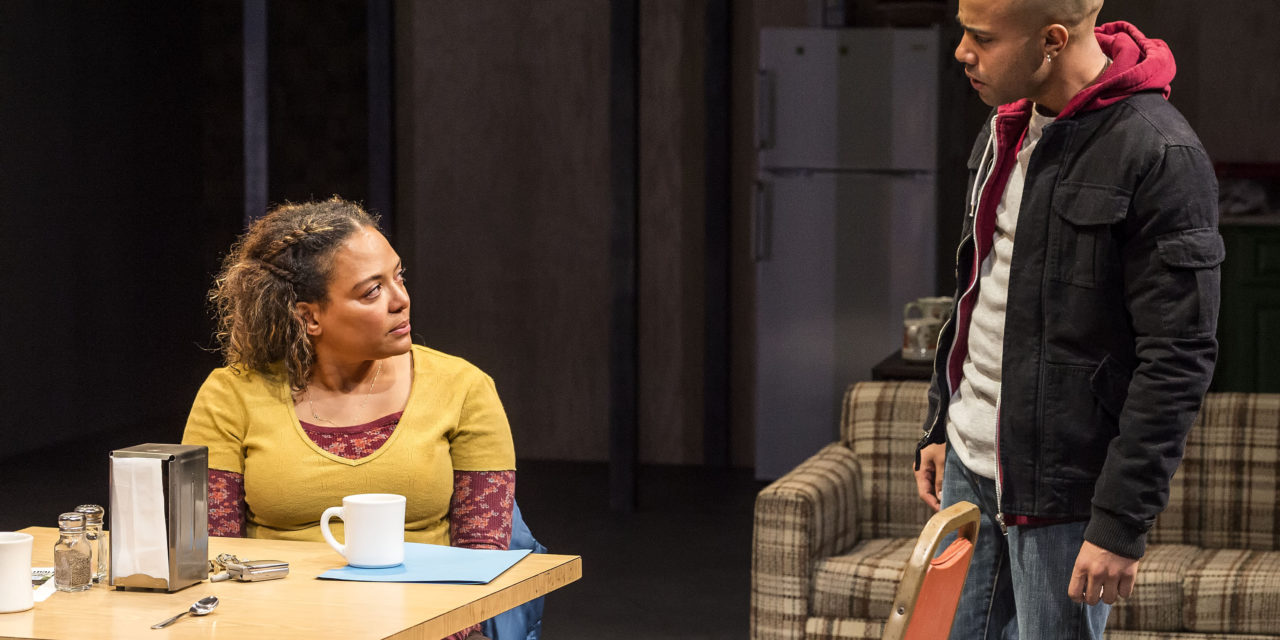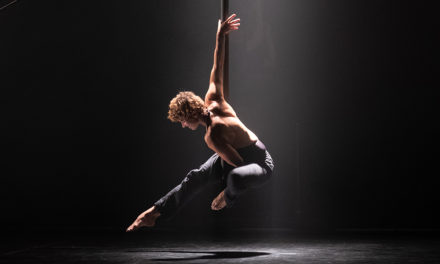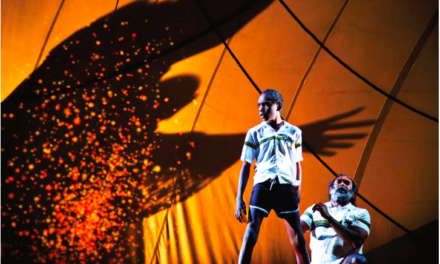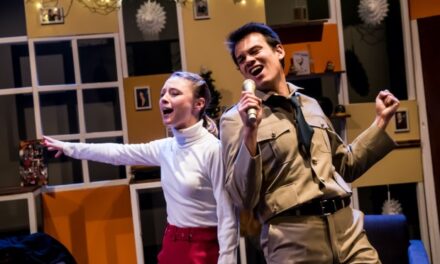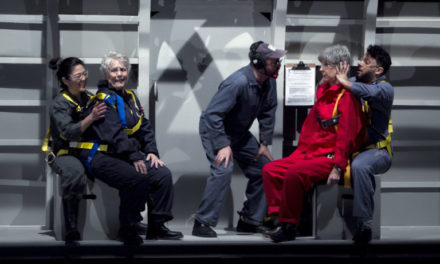From the moment the play begins, it doesn’t take long for anyone to understand why playwright Quiara Alegría Hudes’ work has received such praise. She manages to infuse each exchange with a poetry that never diminishes the individual voice of a character–even when that character is delivering a curse-infused rant about a disappointing exchange with a relative. Hudes’ Elliot Trilogy is undergoing a historic simultaneous run at three theatres in Los Angeles with Elliot, A Soldier’s Fugue playing through February 25th, 2018 at the Kirk Douglas Theatre in Culver City, Water By The Spoonful playing now through March 11th, 2018 at the Mark Taper Forum in Downtown LA and The Happiest Song Plays Last playing Feb 17th through March 19th, 2018 at The Los Angeles Theatre Center. This is another in a commendable series of efforts The Center Theatre Group has undertaken to highlight works while uniting theatres across the city.
Originally commissioned by Hartford Stage where the piece received its world premiere production on October 28, 2011, this production of Water By The Spoonful at the Mark Taper is directed by Lileana Blain-Cruz with a cast of solidly talented actors whose work is diffused by a production that ultimately falls emotionally flat. One can sense the range of emotional dynamics each actor brings to their role but somehow, they never connect clearly with each other and therefore do not connect with the audience as completely as one might hope.
There was an unexplained technical issue on opening night that stopped the performance about ten minutes in but a little over five minutes later the play picked up where we had left off and that hiccup was soon forgotten. One is tempted to consider that the scenic design may have something to do with the feeling of disconnection for it is challenging to understand at any given point whose space we are inhabiting, and therefore what power dynamic might be at stake. A kitchen area with refrigerator, sink, table with what looks like a suitably ancient computer and sofa take the position of power upstage center.
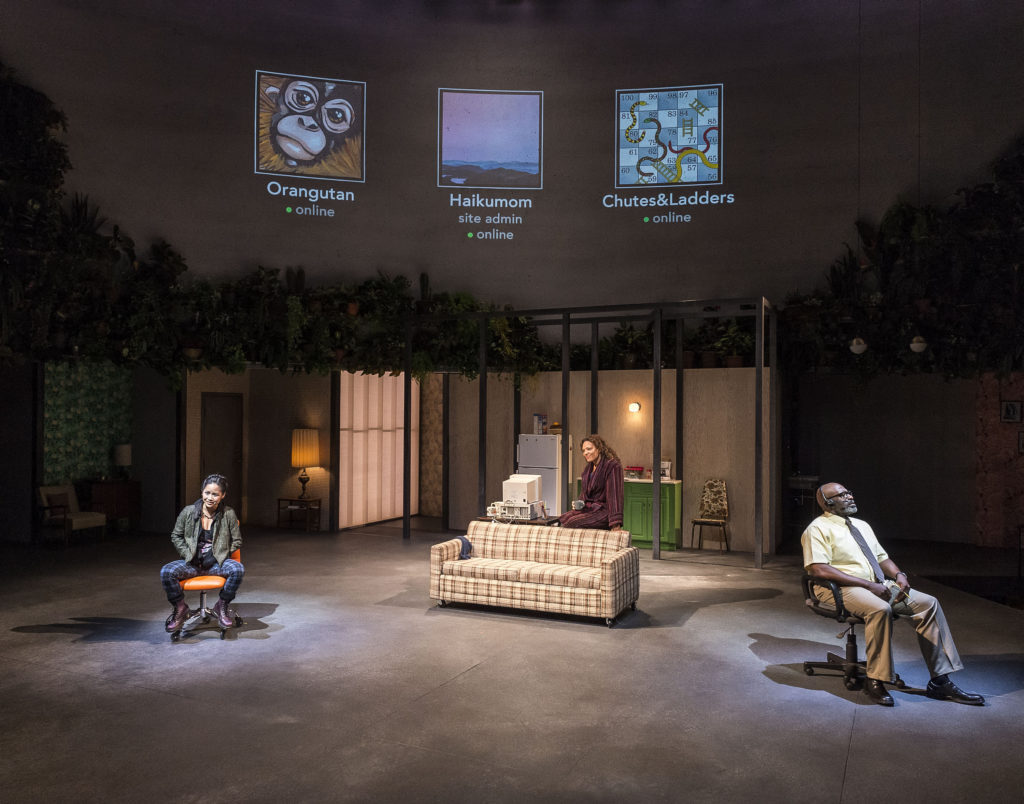
L-R: Sylvia Kwan, Luna Lauren Vélez, and Bernard K. Addison. Photo by Craig Schwartz.
We learn this space belongs to Odessa (played by Luna Lauren Vélez)–a key figure in this ensemble piece but one that might arguably be less suited to take center stage in this play than Elliot (Sean Carvajal) or his cousin Yazmin (Keren Lugo) might be. There are chairs and lamps tucked into corners that seem to indicate other locales and rolling chairs, a bench, and an office desk and chair that come and go as Chutes&Ladders (Bernard K. Addison), Orangutan (Sylvia Kwan), and Fountainhead (Josh Braaten) appear in chat room scenes together but none of these spatial elements seem to have any meaning to the characters and that starts to sap our ability as audience to access this world.
The lighting design does what it can to imbue space with meaning but more often than not the characters stand in what feels like white light that does little to nothing to reveal any hint of internal or external emotional life. From the first scene where we meet Elliot and Yazmin on a bench, the stage is lit up, drawing our focus to that domestic scene behind them when we should be connecting to Elliot as Professor Aman (played by Nick Massouh, who also takes on the roles of Policeman and a Ghost from Elliot’s experiences in the war) translates an Arabic phrase that Elliot says he cannot get out of his head. In Elliot’s dreaming and waking hours that Ghost asks him repeatedly for his passport and Elliot cannot escape. But rather than let us feel whether Elliot knows what that translated phrase means the play whisks out of this first non-descript location onto the next one and we spend the rest of the play trying to catch up, never really understanding who this Ghost is to Elliot or what this memory is doing to his life.
The sense of space matters, especially when experiencing a play in the round featuring multiple locations and characters of such complexity. In one scene the lights come up on Odessa and Fountainhead seated at what looks like a table in a diner–that is situated downstage of the sofa and kitchenette. As the forum leader for an online chat support group for people struggling with addiction (to crack, specifically) Odessa meets with Fountainhead to urge him to consider being honest about his drug problem with his currently clueless wife. Fountainhead is the newest and only WASP-ish member of the chatroom. His reaction to Odessa’s urging would be big enough to draw focus in any public place yet neither character seems to be in one as they speak to one another. This feels even more pronounced when Elliot and Yazmin arrive in a heightened emotional state hoping to get some money out of Odessa to purchase flowers for the funeral of her late sister–the Aunt that raised Elliot when Odessa’s own crack addiction made that role as his mother impossible.
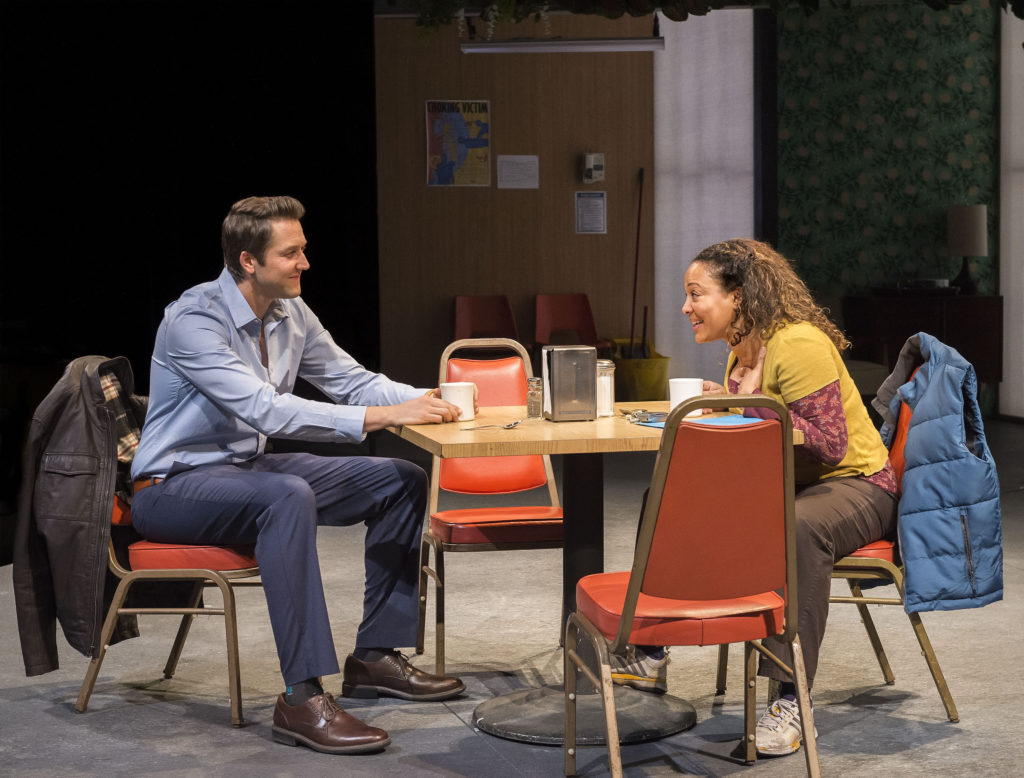
Josh Braaten and Luna Lauren Vélez. Photo by Craig Schwartz.
Not only is there no sense of mother/son history or recognition in the moment when Elliot bursts into the scene but there is zero sense of being in any kind of public place. We are tempted to wonder if they are just in another room in her house until she offers her keys and tells the Elliott and Yazmin to pawn her computer if they want money from her so badly. There is also no real sense of how Fountainhead feels about being at the center of this tornado of family regrets and guilt as Elliot tells the heartbreaking story about the loss of his infant sister after Odessa got too high to continue giving her two toddlers a teaspoonful of water every five minutes to combat stomach-flu induced dehydration. Mr. Carvajal gives the story all the hate and anger it deserves but no matter how compelling he is it is impossible not to feel that the environment plays a lackluster role at best, a diminishing one at worst.
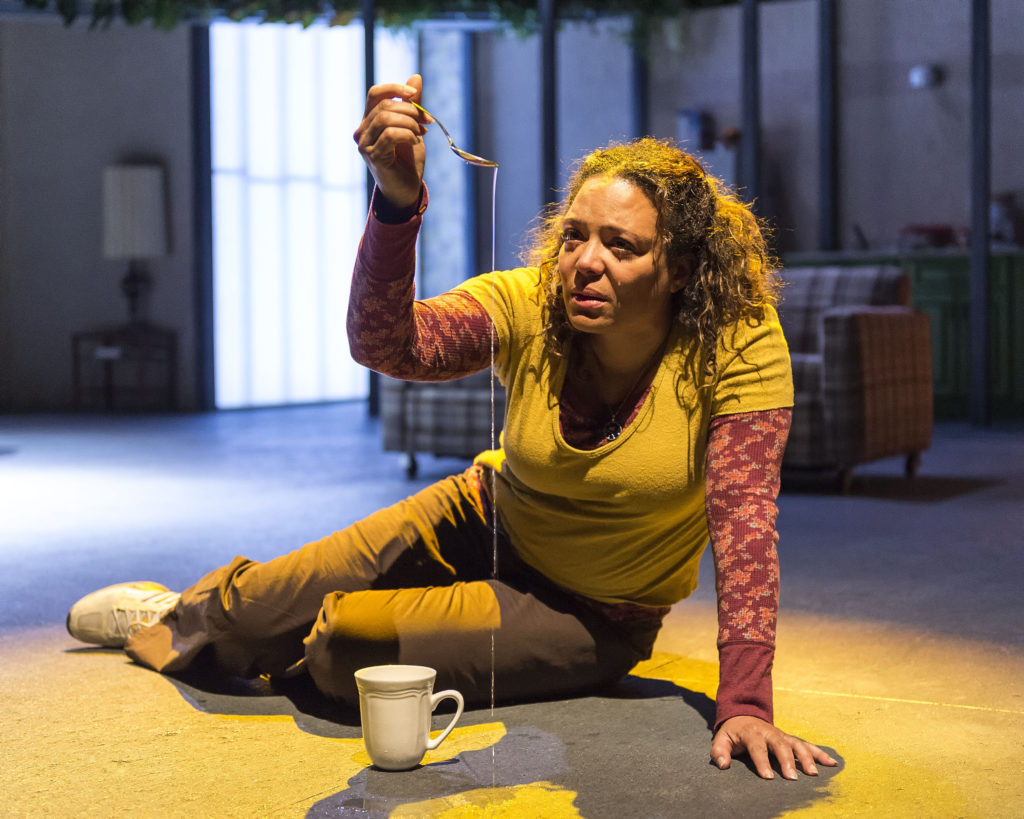
Luna Lauren Vélez. Photo by Craig Schwartz.
Throughout the play, there is a lush to the point of distraction array of flowers and plants situated above the set. One can make an easy leap to equating this element to the flowers that are often spoken about in the recently deceased Aunt Ginny’s garden. They almost predictably become the landscape alongside a waterfall in Puerto Rico where Yazmin and Elliot go to spread the ashes of their beloved Aunt. As the two cousins climb to the top of a scenic wall, two extravagant things occur.
First, Odessa is positioned on stage in a bath with running water and Fountainhead at her side to tend to her after she has a setback. We do not understand how this intimacy has been earned between the two of them and have no sense of where it might lead these two, but it is played out in a visually stunning manner that will make the true lover of technical theatre smile. The second occurs as the bath scene unfolds before us but it happens so subtly at first you have to blink to believe it. A gutter quietly opens mid-stage–and it starts to mist, then eventually rain, as the cousins talk about their future plans and set the ashes free.
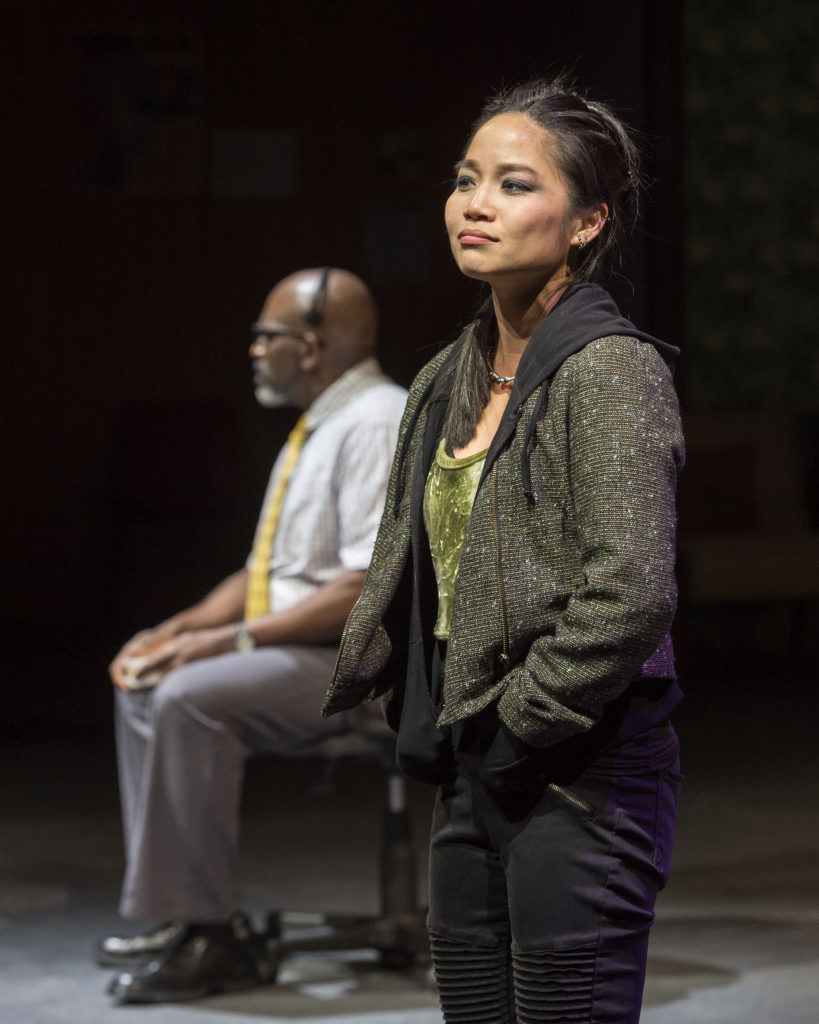
Sylvia Kwan (foreground) and Bernard K. Addison (background). Photo by Craig Schwartz.
If you keep your eyes focused on the cousins you can revel in the sense of freedom that any kind of rain brings Angelenos these days. If you look below to watch Odessa and Fountainhead in their silent, inexplicable new relationship it is challenging not to look at the furniture and dressing that has gone mostly under-utilized on the stage and wish it just wasn’t there. We start to notice the chair on stage right as it gets wet. Rather than ground us in the emotional beats these four characters share, the final tableau makes us choose which characters to care about and makes one wonder why we don’t get to see the final emotional beat between Chutes&Ladders and Orangutan.
We’ve been with them just as long, through as many ups and downs. Both Ms. Kwan and Mr. Addison have the delightful ability to deliver an emotional punch in the gut as deftly as they navigate some of the funniest moments this play has to offer. If they made a final appearance it was lost in the noise of the (still admittedly beautiful) rain and bathtub, which inspired distracting concerns about whether Ms.Vélez was dressed (she was) and hopes that the water was duly warm.
Overall, the play feels timely given its focus on confronting and admitting addiction as it affords us poetic insight into the lives of people we don’t often get to spend this kind of time with, however, the technical aspects of the piece do not feel integrated with the mostly grounded and strong work the actors delivered. Had they all been able to deal less with props and rolling set pieces and more with their internal life and each other, we as the audience might have left feeling something more.
Water By The Spoonful runs Tuesday through Friday at 8, Saturday at 2:30 and 8, Sunday at 1 and 6:30. There are no performances on Mondays. The play is performed with one intermission. Tickets may be purchased online, by calling Center Theatre Group Audience Services at 213.628.2772, or in person at the Center Theatre Group Box Office at The Music Center located at 135 N. Grand Avenue in Downtown LA 90012.
Scenic Design by Adam Rigg. Costume Design by Raquel Barreto. Lighting Design by Yi Zhao. Sound Design by Jane Shaw. Production Design by Hannah Wasileski. The Production Stage Manager is David S. Franklin. The Stage Manager is Michelle Blair.
This post was written by the author in their personal capacity.The opinions expressed in this article are the author’s own and do not reflect the view of The Theatre Times, their staff or collaborators.
This post was written by Christine Deitner.
The views expressed here belong to the author and do not necessarily reflect our views and opinions.

